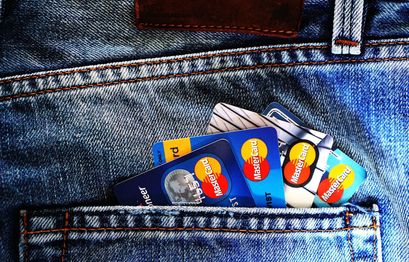
The intersection of digital currency and traditional financial institutions is complicated. Traditional institutions are wary and have been slow to adopt the concept of digital currencies into their operations and even their areas of knowledge. To be specific, digital currency in this context refers to decentralized currencies using distributed ledger technology (DLT), such as cryptocurrencies like Bitcoin.
Resistance From Financial Institutions Means Digital Currencies Don’t Always “Count”
While many countries have begun to invest in DLT, and many banks are considering its use, the majority of the financial world still seems to view digital currency as outside of their evaluations of wealth and financial stability.
This can become a problem for people who are successful with digital currency but may not have the traditional financial assets required by many financial gatekeepers, such as loan officers and banks. One of the most interesting phenomena to come out of the rise in popularity in cryptocurrency is the number of “consumer level” investors who became successful. Average people can end up making fast and large gains, but then encounter issues when they try to move that value into the traditional financial world.
For example, when a Virginian man planned to buy a house using money he gained from Bitcoin investments, he had a great deal of trouble getting a loan. Loan officers were unfamiliar with cryptocurrency and suspicious of the origins of the money. Many traditional financial bodies worry about the potential for criminal activity popularly associated with cryptocurrency, and real estate is already a prime target for money laundering. So even if someone makes a lot of money investing in digital currencies, it can be very difficult to use it to leverage larger loans. Getting gains from digital currency classified as “income” for the purposes of credit reporting is difficult, which means the windfall may be unlikely to improve a credit score, which many loans and credit transactions are based upon.
Digital Currencies Are Considered High Risk
However, one of the reasons that traditional financial forces have been resistant to these currencies is their volatility and potential for disaster for the average consumers engaging with them. All you have to do is search “crypto losses” for a scary look at the kinds of financial hits people have endured. The big issue is that, unlike many traditional investments, people can buy digital currency with debt. In response, many credit card issuers have banned transactions with known cryptocurrency exchanges.
One of the problems that came with opening up these investment-style opportunities to consumer-level investors, is that people who bet wrong are left with debt they can’t repay, becoming a huge risk for the lenders. That has caused them to associate these purchases with extremely high risk, due to the number of people who have lost out and had to declare bankruptcy or consolidate debt in other ways, leading to losses for absolutely everyone involved.
But There’s Hope for Average Consumers Seeking Financial Freedom
According to Arizona State University:
“The industry is fast-paced, competitive and ever-evolving as markets change and global events are scrutinized. … Even now, emerging markets throughout the world are providing new investment opportunities which require specific expertise in those geographic regions.”
Put simply, it may not be long before traditional financial institutions are forced to contend with the expanding world of digital currencies. Some have already begun that process, and the more legitimacy DLT-based currencies gain with governments and banks across the world, the more familiar other institutions will have to become with it just to keep up.
It’s difficult to predict what sort of effect digital currency has on personal credit. Depending on how someone buys it, how sensible they are with it, and what their personal finances are already like, traditional financial institutions could react in many different ways. Some might see an increased risk, while others might be willing to work with you if they’re more savvy and you can demonstrate that savvy yourself. There are a lot of roadblocks to overcome before personal credit and digital currency have a smooth relationship, but those days may be coming sooner than people realize.










